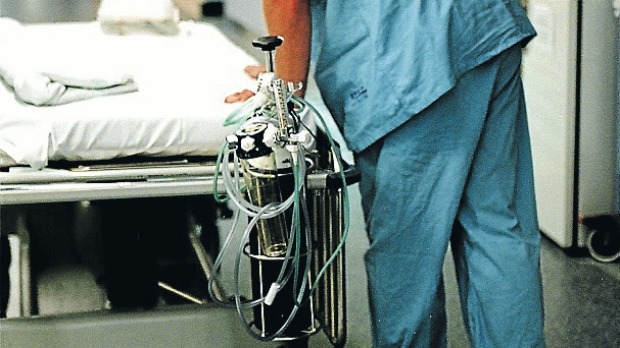
The NSW public hospital system has recorded an increase in the number of major adverse events, including surgical instruments left in patients, the suicide of inpatients and medication errors resulting in death.
A Productivity Commission report released on Tuesday showed that NSW public hospitals recorded 53 “sentinel events” in 2013-14, its highest number in at least five years and more than double the amount recorded in any other state.
They included 18 instances of inpatient suicide, 18 cases of instruments or other material being retained after surgery and requiring a further operation and 12 instances of patients dying from what was believed to be the incorrect administration of drugs.
The medication errors accounted for the bulk of the increase on the previous year’s figures, with only two such events recorded in 2012-13.
The NSW Clinical Excellence Commission declined to provide further details of the individual cases, citing patient confidentiality, but it said in a statement that preliminary data for 2014-15 indicated the number of medication errors had since halved.
CEC director of medication safety Harvey Lander said a new wave of anti-coagulants had come onto the market about 2013-14 and they carried different risks.
“They’re commonly used on patients who have strokes or heart attacks and they’re life saving in those circumstances, but they’re often used in complex clinical scenarios,” Dr Lander said.
“These have risks in these patients. We’ve recognised that and we’re working with clinicians to become more aware in terms of education.”
Queensland and Victoria each recorded three cases of medication errors resulting in death, Western Australia and South Australia recorded one each, while other states had little or no data.
Western Australia recorded two instances of families taking home the wrong infant.
Dr Lander said NSW placed a large emphasis on its reporting systems.
Macquarie University Professor Jeffrey Braithwaite said about one in 10 patients experienced an adverse event while in hospital, though not all of them were serious, and this had changed little in the past 20 years.
But the numbers of sentinel events were so small that it was difficult to draw trends or comparisons between states, some of which may not be as conscientious in their reporting.
“We have tried our darndest to get this [figure] down through our research and it’s proven resistant to our efforts,” said Professor Braithwaite, who is the founding director of the Australian Institute of Health Innovation.
“Notwithstanding that, a sentinel event should not happen.
“But my question is this: how come a system this complex, under this much pressure, with patients that are this sick, manage to deliver world-class care? That’s a bloody miracle.”
University of Sydney Brain and Mind Centre co-director Ian Hickie said hospitals went to extreme lengths to remove the means by which people could kill themselves, but people who were very determined could find a way to do so.
“I think we’ve got to continue to strive to reduce that number, we’ve got to be constantly vigilant, but I think we’ve also got to be realistic,” Professor Hickie said.
“This is not the same as surgically removing the wrong limb. A lot of the other sentinel events are errors of the clinical staff. Here the persons involved are not passive.”
Lifeline: 131 114
Beyondblue: 1300 224 636
